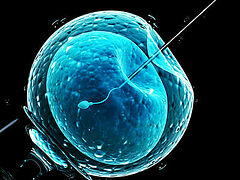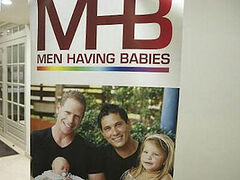Moscow, April 14, 2021
Meeting under the chairmanship of His Holiness Patriarch Kirill of Moscow and All Russia at Moscow’s Danilov Monastery yesterday, the Holy Synod of the Russian Orthodox Church resolved to create a Bioethics Committee to continue to study the issue of in-vitro fertilization, reports the press service of the Russian Orthodox Church.
The document, “Ethical Problems Associated with In Vitro Fertilization,” was earlier prepared by the Inter-Council Presence’s Committee for Theology and Theological Education and sent to the dioceses for review and published for open discussion on February 5. Reviews and comments were collected through March 29.
The Russian Church formulated its first official position towards IVF in the document, “Bases of the Social Concept of the Russian Orthodox Church,” adopted by the Council of Bishops of the Russian Church in 2000. All kinds of IVF (referred to as extracorporal fertilisation in the document) “involving the production, conservation and purposeful destruction of ‘spare’ embryos” are “morally inadmissible,” the document states.
The new draft document notes that since 2000, medical advances have led to the possibility of producing only or two embryos during IVF and transferring them to the womb, and thus proposes that “the Church also allows for the possibility of IVF for spouses who are of childbearing age.”
Participants in the discussion noted that some questions raised regarding the document and the possible conditions for the use of IVF require further discussion on a high theological and scientific level.
At the same time, the importance of studying bioethical problems from the point of view of Orthodox teachings with the participation of experts from a variety of fields and views was emphasized.
Thus, it was resolved to establish a Synodal Committee on Bioethics for this purpose, to be chaired by His Grace Bishop Silouan of Peterhof, the rector of the St. Petersburg Theological Academy.
In connection with the establishment of the Synodal Committee, the Church-Public Council for Biomedical Ethics was abolished. The Council recently reiterated its position “on the ethical incorrectness of IVF methods,” noting that it has “argued its position in detail, based on theological, ethical, and medical grounds.”
“Nevertheless, a group of clergy and laity has been organized in our Church, which aims to change the position of the Church … in relation to IVF and has agreed to compromise with the wishes of women and men to have children based on the achievements of scientific and technological progress,” the Council laments.
Follow us on Facebook, Twitter, Vkontakte, Telegram, WhatsApp, Parler, MeWe, and Gab!





